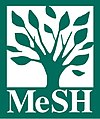Traditional maternal health care: Awareness, beliefs and practices among households in Sta. Barbara, Iloilo

Page views
1,320Date
2009Author
Thesis Adviser
Defense Panel Chair
Share
Metadata
Show full item record
Abstract
In today’s world, the delivery of health care is becoming very expensive. Despite the programs of the Department of Health, many women still believe and practice maternal health care the traditional way in the community. Most prior research on traditional medicine has been focused on quantitative study. There is limited evidence regarding qualitative study on traditional maternal health care.
The purpose of this study is to describe the respondents’ knowledge, beliefs and practices and determine their perception regarding the benefits and risks of traditional maternal health care during pregnancy, labor, delivery and puerperium.
The research was conducted using qualitative method of information gathering through focus group discussions. Thirty -six mothers were purposively selected from three barangays in Sta. Barbara, Iloilo. Data gathered through focus group discussions were presented in narrative form.
The results of the study showed that respondents were aware of the existence of traditional maternal health care in the community. They acquired the knowledge from parents, relatives, friends, traditional healers and community leaders. The respondents shared these values and beliefs to their children.
Traditional beliefs and practices described in the study include maternal nutrition, use of herbs, natural products or plants, spiritual care, rituals, physical activities and interventions.
Many traditional therapies emphasized prevention and wellness. These traditional beliefs and practices are non invasive, have few or no side effects, affordable and available. Traditional therapies can be beneficial in assisting the woman in easing discomforts of pregnancy and providing psychological comfort.
Lack of standardization and research substantiating safety and effectiveness of herbs, inadequate training of some healers are perceived risks of traditional maternal health care practices. Furthermore, not following traditional practices can cause problems and disagreements between the members of the family.
Traditional maternal health care practices and beliefs are still prevalent in the community. Health education, program of activities and support could be provided to mothers. Health personnel should conduct scientific research and monitor the use of traditional therapies. The department of health and nursing schools must expand services to meet the needs of women and communities by ensuring the safety of traditional beliefs and practices and modify plans or policies for future development regarding traditional maternal health care.
Description
Abstract only
Suggested Citation
Segovia, A. D. (2009). Traditional maternal health care: Awareness, beliefs and practices among households in Sta. Barbara, Iloilo (Unpublished Master's thesis). Central Philippine University, Jaro, Iloilo City.
Type
ThesisSubject(s)
Department
School of Graduate StudiesDegree
Master of Arts in NursingShelf Location
GSL Theses 610.73072 Se37
Physical Description
ix, 94 leaves



